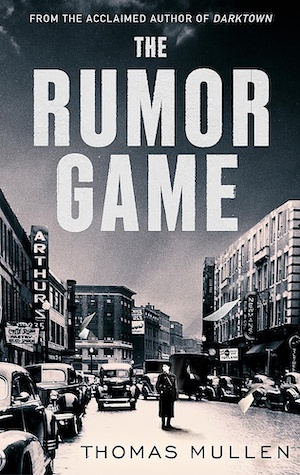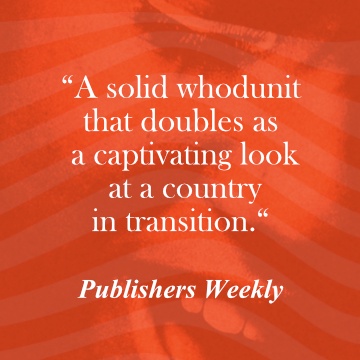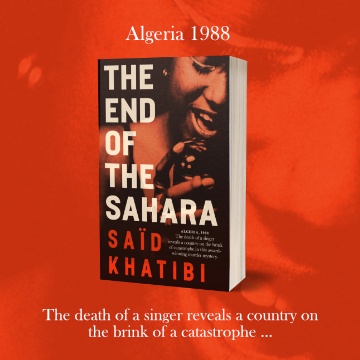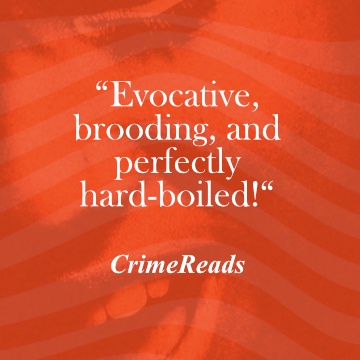
Thomas Mullen made his name with the Darktown novels, set in racism-riddled 1940s Atlanta. Last year, he changed tack with a near-future sci-fi thriller called Blind Spots. With The Rumor Game he returns to mid-century America with a historical thriller set in Cambridge, Massachusetts early in World War II.
Journalist Anne Lemire writes a column for the local paper called the Rumor Clinic, doing her best to debunk some of the stories that float around and somehow gain traction in wartime, which might hurt morale. When we are introduced to her she is busting a rumour that a doctor at Fort Gillem was performing illegal abortions for women in the WAAC made pregnant by local soldiers.
Anne is a serious and politically-engaged young lady and is pleased to be able to do her bit for the war effort. She would have been horrified by the atrocities of the German Nazi Party even without her Jewish background. Unfortunately, antisemitism isn’t the sole preserve of the Nazis, and has shown its ugly face in her community. Young Jewish kids, her brother Sammy included, are being attacked by a local gang. She has also seen pamphlets calling for American isolationism which cast the War is a European problem and claim America’s involvement is a Jewish trick.
Lemire’s editor at the paper, Larry Barnett, is dismissive of her request to investigate the gangs, saying it isn’t related to the war effort. Similarly, he warns Anne off investigating the hate tracts. Anne can’t help feeling a man might have been given more leeway and is concerned that anti-war sentiment within the local community might not be restricted to just a few cranks. She resolves to investigate further herself.
The Rumor Game also introduces Special Agent Devon Mulvey of the FBI, a womaniser and carouser. He is attached to a task force combating efforts to derail the US war effort. His Irish Catholic background makes him an outsider in the WASP-ish FBI, and raises suspicions in his own community. His partner is Lou Loomis, and they barely tolerate one another on account of their different backgrounds.
Mulvey, already feeling guilty for having a job that has allowed him to avoid the draft, is uncomfortable investigating his own community, especially when many close to him, including his father and his cousins in the police force, don’t agree with America’s decision to join the Allied war effort.
Devon and Loomis are called to assist in a murder investigation. A man’s body has been found stabbed in an alley. On his person is a time card for the Northeast Munitions Factory – meaning it could be FBI business – and a cocktail napkin with a swastika drawn on it.
Mulvey finds out the corpse was called Abraham Wolff and interviews his wife Elena, learning that the couple were Jewish refugees fleeing Europe. She denies her husband had any political affiliations or enemies at the factory. Loomis is satisfied and wants to drop the case, but something in his manner makes Mulvey want to keep digging.
The same qualities which elevated Mullen’s Atlanta cycle are present here. He has a knack for bringing a time and place to life, and for revealing the simmering tensions between communities. The Irish, Yankee and immigrant clans might all be nominally American but the author shows the distrust, and even hate, that they each have for the other.
The level of isolationist sentiment is surprising – a feature of that period of which I was not previously aware. This of course resonates with the growing isolationism of the American right, as seen today in their opposition to supporting Ukraine in repelling the Russian invasion. As Lemire’s and Mulvey’s investigations intersect, it’s fascinating to see how their different backgrounds, experiences and loyalties prevent them from truly working together, despite their shared goals.
Thomas Mullen‘s two protagonists, together and separately, discover a complex plot including fraud, political and police corruption, American fascism and sedition. It’s a story which kept me interested right to the end. It seems possible we may see a sequel featuring either Lemire or Mulvey, but not together. Either way, I will be along for the ride.
Click here for more World War II crime fiction.
Abacus
Print/Kindle
£12.99
CFL Rating: 4 Stars











